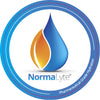Should I Take a Bath or Shower With POTS?


It’s a question a lot of people with POTS (postural orthostatic tachycardia syndrome) will ask themselves. Should I shower or should I take a bath? Which will be better for me? The answer isn’t easy either.
We have already talked about ways to take a shower that will make it easier on you in “8 Shower Tips When You Have POTS”. It includes tips like shower chairs, turning the water off between washing body parts, resting after the shower, and more. But there’s something to be said about the relief a person can get when they take a bath.
Taking a Bath With POTS
A bath may seem like a logical choice. You’re not standing, something that can cause blood pooling, and your arms aren’t lifted as high above your head. When you’re taking a bath it can make your symptoms of POTS feel better, but that can come at a cost.
Ariel says, “My doctor told me when I first got diagnosed with hEDS and POTS that swimming/baths are sort of a double edged sword for us. When you’re in the water, the pressure of the water relieves some of the POTS symptoms and supports your circulation. Getting out of the water, the sudden change in pressure results in greater symptoms after a bath or swim.”
Grace agrees saying, “I spent hours in a pool two weeks ago because it felt so amazing. When I got out of the pool my vestibular symptoms were horrible and I felt like I was made of bricks. It sucks because being in the pool was magical. I love a hot shower and never do baths. A shower stool has been a lifesaving investment for me!”
Seems that a bath in the short term (while you’re in the water) can feel healing. The problem is when you get out of the bath all those healing properties of the water have gone and it can feel like your symptoms of POTS have gotten worse.
Taking a Shower With POTS
Showering isn’t easy when you have a chronic illness. You’re standing for a long time, hands over your head, and the water temperature can play a big part in it too. “Do not take a bath. I know the thought of standing and lifting your arms above your head sounds absolutely atrocious, but if you’re like me and incapable of taking a lukewarm bath and need it hot do NOT take a bath. I’m in the depths of a flare right now and I probably just tacked on a couple days,” says Jenna.
There are ways to manage showers a little easier. Grace continues, “A shower stool changed my life! Well, maybe not my life. But, it enabled me to shower more often, which probably changed the lives of those around me…”
Making sure that you budget time for resting after a shower is a must do. It will give your body time to regulate the temperature differences and if you’re lying down it can help with any blood pooling that may have happened. Increasing your sodium intake can also help. Drink a medical grade electrolyte solution like NormaLyte directly before you shower to give your body a fighting chance to succeed before you even start.
It’s Not One Size Fits All
Some people will have an easier time for whatever reason taking a bath while many others report that baths tend to make them feel worse. Unfortunately, it’s hard to know where your body will land on this issue unless you just try it out.
Amanda chimes in saying, “POTS is so, so individualized, and baths have always been way better for me. In fact, my hygiene actually suffers if I don't have access to a bathtub. It's essential to my self-care, and showers are impossible for me. I mean, yeah, I have to rest afterward, but I have to rest after a shower too. That said, I have a shower chair and it helps.”
The moral of the story here is that you just have to listen to your body to know what will work for you. Staying hydrated is essential, and doing it effectively means using an oral rehydration solution that will help you retain the water you drink. We recommend using a medical grade ORS electrolyte like NormaLyte that has been clinically proven to manage symptoms of POTS.







Leave a comment